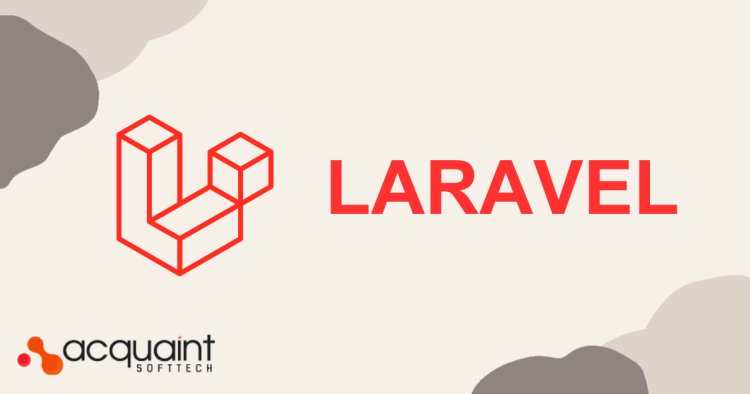Where Is Healthcare Development Heading in the Future?
the future of healthcare development holds immense promise and potential. explored the current state of healthcare, the challenges faced, and the emerging technologies transforming the industry.

Introduction
Healthcare development is crucial for improving the well-being of people around the world. With rapid technological advancements, the healthcare industry is on the brink of transformative changes. In this blog, we'll explore the exciting prospects and potential challenges in the future of healthcare. From cutting-edge technologies to personalized medicine and digital health solutions, we'll unravel how these advancements are shaping the way we access and receive healthcare services. Let's embark on this journey to understand where healthcare is heading and how it will impact all of us.
Current State of Healthcare Development
A. Overview of the Present Healthcare Landscape
- Healthcare is a vital aspect of our lives, involving medical services and facilities that aim to promote well-being and treat illnesses.
- The healthcare industry varies across countries, with some having advanced systems, while others face significant challenges.
B. Key Challenges Faced by the Healthcare Industry
- Rising Healthcare Costs
- Medical expenses are soaring, making it difficult for many people to afford essential treatments and medications.
- Access to Healthcare in Developing Countries
- In many developing nations, access to quality healthcare is limited, leading to inadequate medical services for a significant portion of the population.
- Ageing Population and Chronic Diseases
- The global population is ageing, resulting in an increased prevalence of chronic diseases that require long-term care and management.
- Data Privacy and Security Concerns
- The digitalization of healthcare records raises concerns about data breaches and the misuse of sensitive medical information.
C. Role of Technology in Shaping Healthcare
- Technology plays a crucial role in revolutionizing healthcare by offering innovative solutions for diagnostics, treatment, and patient care.
- Advancements in artificial intelligence, telemedicine, and wearable devices are improving medical outcomes and patient experiences.
Emerging Technologies in Healthcare
Healthcare development has witnessed a revolution with the advent of cutting-edge technologies. These advancements are geared towards improving patient care, accessibility, and data management. Let's explore some key emerging technologies that are transforming the healthcare industry:
A. Artificial Intelligence and Machine Learning
- AI-assisted Diagnostics: AI-powered algorithms analyze medical data to assist doctors in accurate diagnoses and personalized treatment plans.
- Predictive Analytics in Patient Care: AI predicts patient health outcomes, helping healthcare professionals proactively address potential issues.
- Drug Discovery and Development: AI accelerates drug research, identifying promising compounds and expediting drug development processes.
B. Telemedicine and Remote Patient Monitoring
- Telemedicine facilitates virtual consultations, enabling patients to access medical advice remotely.
- Remote patient monitoring employs wearables and mobile apps to track patients' health metrics in real-time, supporting continuous care.
C. Blockchain Technology for Data Interoperability
- Blockchain ensures secure and interoperable sharing of patient data among healthcare providers, enhancing care coordination.
D. 3D Printing in Medical Applications
- 3D printing enables the creation of custom prosthetics, implants, and anatomical models, improving treatment precision and patient outcomes.
Healthcare app development, web development, and related services from specialized healthcare development companies are crucial to harness the potential of these technologies and drive the future of healthcare. By leveraging these advancements, the healthcare industry can embrace innovation, enhance patient experiences, and achieve better overall health outcomes.
Personalized Medicine and Genomics
- Personalized Medicine tailors medical treatment to an individual's unique characteristics, including their genetic makeup, lifestyle, and environment.
- Advancements in Genomics have revolutionized healthcare by enabling scientists to study and understand genes and their role in disease.
- Gene Editing allows scientists to modify DNA, potentially correcting genetic defects and opening doors for new treatments.
- Precision Medicine offers promising solutions for complex diseases like cancer, where treatments can be precisely targeted based on a patient's genetic profile.
- The Potential of Precision Medicine includes improved treatment outcomes, reduced side effects, and a shift towards preventive healthcare.
- Ethical considerations arise due to genetic privacy concerns and potential misuse of genetic information.
- Balancing the benefits of personalized medicine with privacy safeguards is essential to maintain trust in healthcare systems.
Keywords: healthcare app development, healthcare web development, healthcare development services, healthcare development company.
Integrating Artificial Intelligence and Human Expertise in Healthcare
In the future of healthcare app development and healthcare web development, the collaboration between Artificial Intelligence (AI) and healthcare professionals will play a crucial role in transforming patient care. Here are key points to understand this integration:
A. The Role of Healthcare Professionals in the Future
- Healthcare professionals remain essential in diagnosing and treating patients, even with AI advancements.
- AI can assist healthcare providers by analyzing vast amounts of data, leading to more accurate diagnoses and treatment plans.
- Doctors and nurses will focus more on patient interaction and empathy, creating a stronger doctor-patient bond.
B. The Human Touch in Patient Care
- Despite technological advancements, the human touch is irreplaceable in healthcare.
- Compassion, empathy, and understanding are vital in supporting patients emotionally and mentally.
- AI can handle repetitive tasks, allowing healthcare experts to concentrate on personalized patient care.
C. Ensuring Ethical AI Integration in Healthcare
- Striking a balance between AI and human involvement is crucial to avoid ethical dilemmas.
- Healthcare development services must prioritize patient privacy and data security.
- Continuous monitoring and regulations are essential to maintain ethical AI practices.
By leveraging the expertise of a healthcare development company, we can create AI-powered solutions that empower healthcare professionals while upholding the human-centric approach to patient care. Together, AI and human expertise will shape a more efficient, compassionate, and reliable healthcare system for all.
Addressing Healthcare Disparities and Access
A. Global Healthcare Disparities
- Healthcare inequalities persist worldwide, with some regions lacking access to basic medical services.
- Limited resources and infrastructure in developing countries contribute to disparities in healthcare outcomes.
- Marginalized populations and minorities often face higher barriers to healthcare access.
B. Leveraging Technology for Better Healthcare Access
- Healthcare app development and healthcare web development can improve access to medical information and services.
- Telemedicine enables remote consultations, benefiting individuals in remote or underserved areas.
- Mobile health apps offer health monitoring and self-management tools, empowering patients to take charge of their health.
C. Innovative Solutions for Underserved Communities
- Collaborations between healthcare development services and NGOs can bring medical aid to underserved regions.
- Low-cost, portable medical devices can enhance diagnosis and treatment options in resource-constrained areas.
- Public-private partnerships can foster innovation and sustainable healthcare solutions.
Future Challenges and Opportunities
A. Regulatory and Legal Considerations
- Healthcare development companies must comply with evolving data protection laws and medical regulations.
- Balancing innovation with patient safety and privacy remains a critical challenge.
B. Data Security and Privacy Concerns
- Protecting sensitive health data is crucial in healthcare app development and web development.
- Robust cybersecurity measures are essential to prevent data breaches and ensure patient trust.
C. Healthcare Workforce Readiness
- Healthcare professionals must adapt to technological advancements to provide quality care effectively.
- Continuous education and training programs are vital for keeping the workforce updated.
D. Balancing Technology and Human-Centric Care
- Striking a balance between technology-driven solutions and compassionate, human-centric care is essential.
- Ensuring that technology enhances, not replaces, the patient-doctor relationship is a priority.
In conclusion, healthcare development services and companies play a pivotal role in addressing global healthcare disparities and improving access to medical services. By leveraging technology, innovative solutions, and prioritizing regulatory compliance and patient privacy, the healthcare industry can overcome future challenges and create a more equitable and patient-centered future.
Conclusion
In summary, the future of healthcare development holds immense promise and potential. We've explored the current state of healthcare, the challenges faced, and the emerging technologies transforming the industry. From artificial intelligence to personalized medicine and digital health solutions, technology is revolutionizing patient care.
Emphasizing the importance of healthcare development is crucial to improving global health outcomes. By leveraging technology, we can address healthcare disparities and ensure better access for all. Though challenges exist, we remain optimistic about a healthier future where technology and human expertise work hand in hand to provide compassionate and effective care for everyone.












